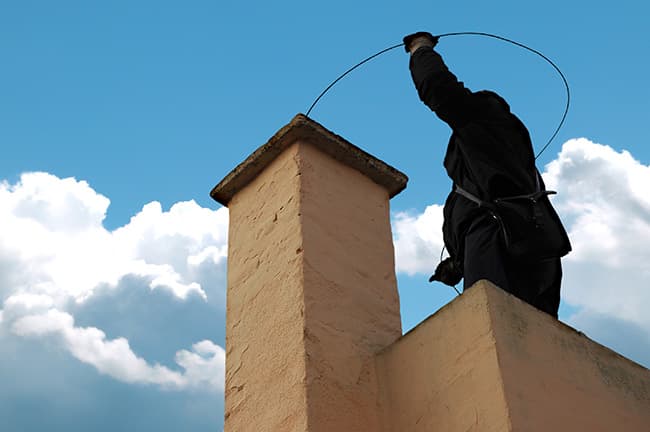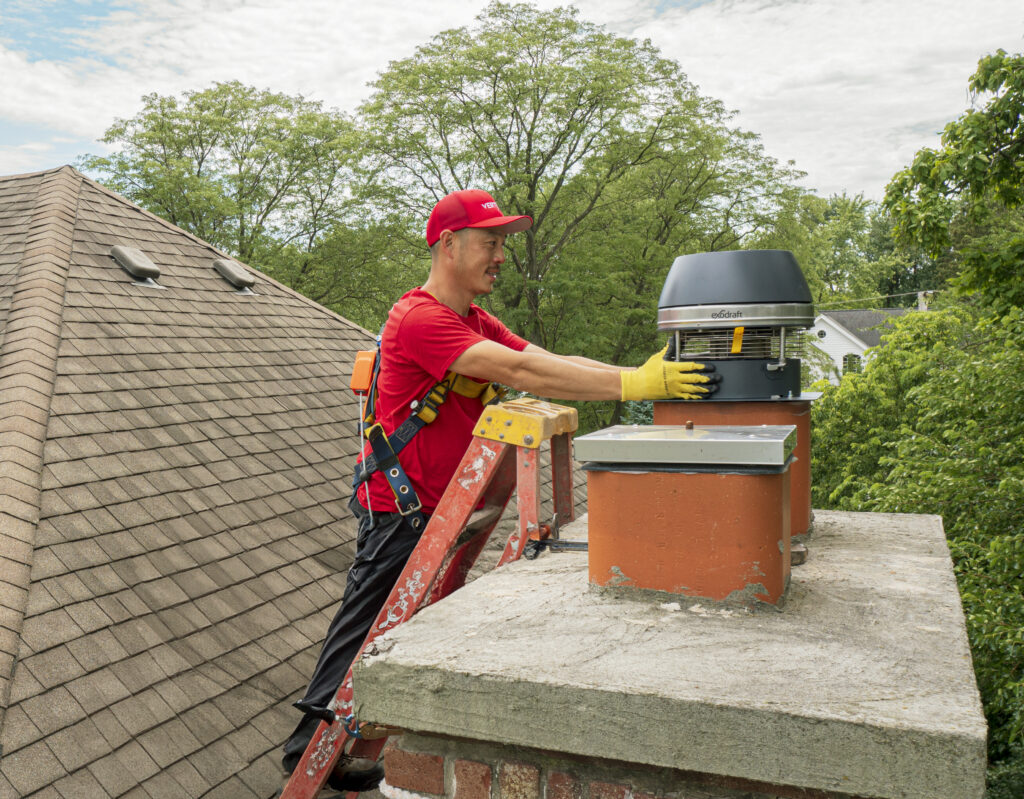
Cleaning is Imperative to Health and Safety
If your house has one or more fireplaces, cleaning your chimney is a necessary chore to keeping their function healthy, long-lasting, and preventing dangerous ramifications inside your house. Ignoring this critical task of chimney cleaning can cause blockage and buildup of toxic gases within your home. These gases are by-products from the combustion process of fires and human beings aren’t meant to inhale them. They can cause serious respiratory issues and in the worst cases, suffocation or carbon monoxide poisoning. Ultimately, it’s much more than a matter of aesthetics if you neglect your chimney, but one of a health concern. Creosote is the buildup on the inner walls of your chimney, and with the chimney’s main purpose of venting dangerous toxins out of your home, the buildup can interfere with this function. When gas and smoke can’t vent outside properly, it can billow back into your home. Aside from that, not cleaning your chimney can also cause a chimney fire.No Obvious Signs
The unfortunate part of a chimney cleaning is that there aren’t any obvious warning signs, but there’s a reliable piece of advice from the National Fire Protection Association (NFPA). According to the NFPA, you should have an inspection done on your chimney at least once per year to ensure its proper functionality and safety. Cleaning, maintenance, and repairs are based off of the inspection, completed by a chimney professional, who will advise if your chimney needs to be cleaned or not. There may not be obvious warning signs of a dirty chimney, but there are still some indications that a chimney needs to be cleaned. You might notice a foul or unpleasant smell being omitted from the chimney, especially during the summer. Heat and humidity make a dirty chimney stand out more noticeably than in colder months. You might also notice dust or dark residue. In terribly dirty and uncleaned chimneys, this residue is more apparent. Chimney dust and residue can be tracked out from your fireplace opening and into your house. It can stain nearby carpet or rugs, so be weary of this if you’re investigating your chimney for cleanliness. You might wonder why the NFPA doesn’t advise a yearly cleaning of chimneys. Every homeowner is different in their frequency of using their fireplaces, so a chimney cleaning might be required less often if it’s not used, or it could be advisable to clean a chimney once a year if the homeowner does use it regularly. It simply depends on the creosote buildup. However, it is recommended that a chimney is cleaned after ever face cord of word, or every two years. If you are unsure if your chimney needs cleaning, an inspection conducted by a professional will determine if the chimney needs to be cleaned, and if that’s followed—as advised—annually, then you should have no problems.
